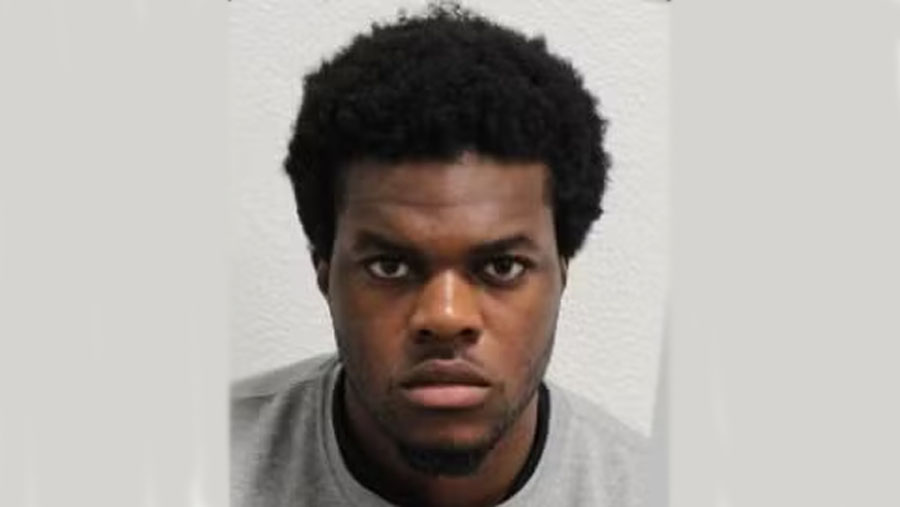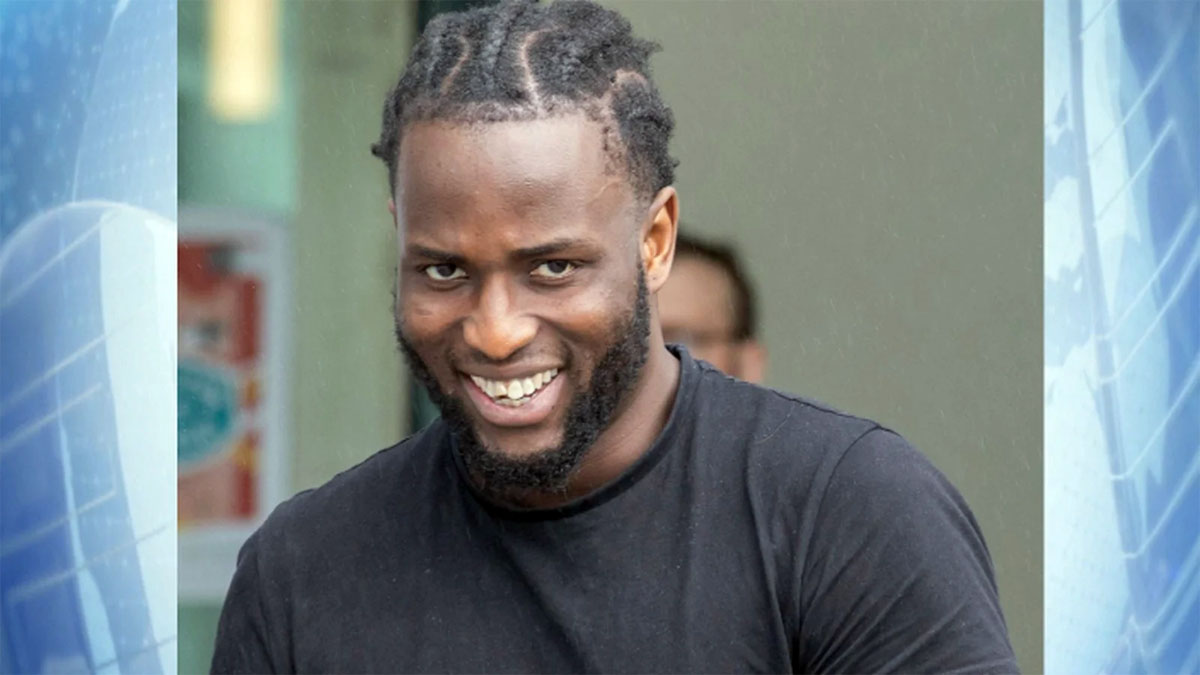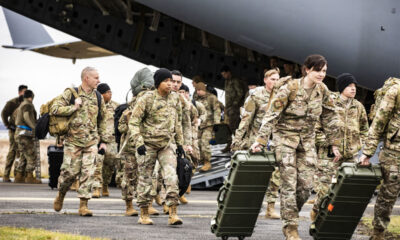International
Trump Mar-a-Lago home searched over ‘likely’ efforts to hide files, DoJ says

The FBI searched Donald Trump’s Mar-a-Lago resort in Florida after it obtained evidence there was probably an effort to conceal classified documents in defiance of a grand jury subpoena and despite Trump’s lawyers suggesting otherwise, the Department of Justice said in a court filing late on Tuesday night.
The filing, opposing Trump’s request for an independent review of materials seized, amounted to the most detailed picture of potential obstruction of justice yet outlined by the DoJ.
“Efforts were likely taken to obstruct the government’s investigation,” the filing alleged.
Among new revelations in the 36-page filing were that agents recovered three classified documents from desks in Trump’s office and additional classified files from a storage room, contrary to what Trump’s lawyers indicated.
The DoJ suggested the effort to conceal documents started on 3 June, as Trump’s representatives produced a single legal envelope, double-taped, in response to a subpoena for materials removed from the White House.
The file was given to Jay Bratt, the chief DoJ counter-intelligence official, by a Trump lawyer and his records custodian, who signed a letter certifying a “diligent search” had been conducted and all documents responsive to the subpoena were being returned.
The lawyer also told Bratt all records in the envelope had come from one storage room, that there were no other records elsewhere at Mar-a-Lago, and that all boxes brought from the White House had been searched, the DoJ said.
READ ALSO:
- Katsina Records 57 Cases of Monkeypox, Cholera
- Protests As Over 80 Houses Are Demolished In Edo Community
- Visiting Jonathan to seek support shows you are shameless, Niger Delta activist blasts Tinubu
A copy of the letter reproduced in the filing redacted the custodian’s name. Two sources familiar with the matter identified the custodian as Christina Bobb, a member of Trump’s legal team.
According to the filing, the FBI uncovered evidence through multiple sources that classified documents remained at Mar-a-Lago in defiance of the subpoena, and that other records were “likely” removed from the storage room and concealed.
The DoJ said the evidence – details of which were redacted in an affidavit unsealed last week – allowed it to obtain a warrant to enter Mar-a-Lago, where FBI agents found more classified documents in Trump’s office.
“The government seized 33 items of evidence, mostly boxes,” the filing said. “Three classified documents that were not located in boxes, but rather were located in the desks in the ‘45 Office’ were also seized.”
In an exhibit resembling how the justice department would show the results of a drug bust, the filing included a photo of retrieved documents emblazoned with classification markings including “top secret” and “secret” designations.
The DoJ said the documents collected most recently included “sensitive compartmented information”, while other documents were so sensitive that counterintelligence agents reviewing them needed additional security clearances.
The filing said: “That the FBI recovered twice as many documents with classification markings as the ‘diligent search’ that the former president’s counsel and other representatives had weeks to perform, calls into serious question the representations made in the 3 June certification.”
Trump responded on Wednesday with a post on his social media platform, alleging without evidence that the photo of documents was staged and that the documents were supposedly declassified.
“Terrible the way the FBI, during the Raid of Mar-a-Lago, threw documents haphazardly all over the floor (perhaps pretending it was me that did it!), and then started taking pictures of them for the public to see,” Trump said. “Thought they wanted them kept Secret? Lucky I Declassified!”
Trump and allies have insisted he issued some sort of a standing order when he was president that any materials he took to the White House residence were declassified. He has produced no paperwork that might confirm that claim.
READ ALSO:
- 115 Killed, 73,379 Displaced As Floods Hit 22 States, FCT
- Those Calling For My Resignation Are Kids, Ayu Bombs Wike’s Camp
- Osinbajo leaves for US seeking global energy support
In a subsequent post, Trump wrote: “Whatever happened to NUCLEAR, a word that was leaked early on by the FBI/DOJ to the Fake News Media!” – a reference to a news report that the FBI sought materials relating to nuclear weapons.
The justice department appears to have asked Trump representatives in the June subpoena to return documents marked as “S/FRD”, short for “Secret/Formerly Restricted Data”, a control relating to nuclear weapons information designated by the Atomic Energy Act.
Trump has never addressed the central question of why he had classified documents at Mar-a-Lago, why they were in his private office, and why the documents were not surrendered when he was subpoenaed in June.
On Wednesday morning, Liz Cheney, the Wyoming Republican who is vice-chair of the House January 6 committee and a leading Trump critic, tweeted the picture of documents on the floor at Mar-a-Lago and condemned “yet more indefensible conduct by Donald Trump”.
Adam Schiff, the California Democrat who chairs the House intelligence committee, said: “The government’s brief is devastating. The legal arguments are compelling, but what is most striking are the facts outlining how the former president and his team knowingly put our national security at risk.”
In the DoJ filing, after painting an extraordinary portrait of the hurdles the DoJ had to overcome to recover documents that belong to the government, prosecutors argued Trump had no basis to seek the appointment of a so-called special master to review the files.
The request fails, the filing argued, because Trump is attempting to use the potential for executive privilege to withhold documents from the executive branch – which the supreme court decided in Nixon v GSA did not hold.
The DoJ added that even if Trump could successfully assert executive privilege, it would not apply because the documents marked classified were seized as part of a criminal investigation into the handling of the documents themselves.
Trump is expected to press on with his request for a special master and to obtain a more detailed list of materials taken, a source close to his legal team said, also disputing that the DoJ filing raised the likelihood of an obstruction charge.
On Tuesday morning, Trump added a third lawyer, the former Florida solicitor general Christopher Kise, to his legal team, said two sources with direct knowledge of the matter.
International
UK Court Hands Life Sentence to Nigerian Teen for Knife Attack Killing

UK Court Hands Life Sentence to Nigerian Teen for Knife Attack Killing
A Nigerian teenager residing in the UK, Jackson Uwagboe, has been sentenced to life imprisonment for the murder of 21-year-old Robert Robinson, following a brutal knife attack in Lewisham, London. The sentencing was delivered at the Old Bailey on Wednesday.
The Metropolitan Police confirmed that 19-year-old Uwagboe of Hamilton Street, Lewisham, was found guilty of murder on Tuesday, 10 February 2026, in a case stemming from a dispute over a stolen bicycle. The court ruled that Uwagboe must serve a minimum of 21 years before he can be considered for parole.
Uwagboe’s co-defendant, Eromosele Omoluogbe, 24, was earlier convicted of perverting the course of justice after assisting Uwagboe in attempting to flee to Nigeria via Heathrow Airport.
READ ALSO:
- Ogun Gov Rewards Nigeria’s Best Primary School Teacher with Car, Bungalow
- Police Bust Gang Armoury, Arrest Two Suspects in Delta
- Peter Obi Launches ‘Village Boys Movement’ to Rival Tinubu’s City Boys Ahead of 2027
Prior to this sentencing, two other men, Ryan Wedderburn, 18, and Kirk Harris, had already been convicted and handed life sentences in May 2025 for their roles in the same murder.
Detective Inspector Neil Tovey, who led the investigation, described the incident as a “brutal and sustained attack”. He said, “Robert was subjected to a brutal and sustained attack by a group of men armed with knives. He was unarmed, already wounded, and on the ground when Uwagboe attacked him. Today’s verdict brings justice for Robert Robinson and his family.”
The case has drawn attention to youth violence, knife crime, and gang-related activity in London, as well as the challenges faced by law enforcement in preventing violent disputes over seemingly minor disputes such as bicycle theft.
The sentencing underscores the UK judicial system’s approach to serious violent crimes, ensuring that perpetrators face long-term incarceration while providing a clear minimum term before parole consideration.
UK Court Hands Life Sentence to Nigerian Teen for Knife Attack Killing
International
UK-Based Nigerian Gets 13-Year Jail Term for Forcing Girlfriend to Abort Pregnancy

UK-Based Nigerian Gets 13-Year Jail Term for Forcing Girlfriend to Abort Pregnancy
A UK-based Nigerian man, Adeleke Adelani, has been sentenced to more than 13 years’ imprisonment for unlawfully aborting the pregnancy of his former partner after coercing her to take abortion medication on Valentine’s Day.
The offence occurred in 2020 when Adelani, then 28 years old, deceptively invited the woman — whose identity is legally protected — to his residence in Letterkenny under the guise of discussing the future of her pregnancy. Evidence before the court showed that the victim was nine weeks pregnant at the time of the incident.
Prosecutors told the court that upon her arrival, Adelani threatened the woman with violence and forced her to ingest five tablets of misoprostol, a drug used for medical abortions, thereby causing the unlawful termination of the pregnancy. The court heard that the defendant had researched the medication in advance and acted deliberately. The victim later contacted authorities, leading to Adelani’s arrest by Irish police.
READ ALSO:
- Lawmaker Jailed for Mocking President in Facebook Post
- Police to Arrest TikToker Mirabel After She Recants False Rape Claim
- Tinubu Reduces Reliance on U.S, Strengthens Defence Partnerships With Turkey, EU
At the time of the sentencing, Adelani was already serving a separate seven-year prison sentence for an unrelated offence. He had initially been due to stand trial last year but pleaded guilty before jury selection began, accepting responsibility for the charges brought against him.
During the sentencing hearing at the Letterkenny Circuit Court, the victim delivered a powerful impact statement, explaining that although she had chosen to forgive Adelani, the consequences of his actions would remain with her for life.
“I have forgiven the defendant,” she told the court. “That forgiveness does not mean what he did was acceptable. It means I refuse to let what he did continue to control my heart and my life. When he wrongfully imprisoned me and caused the termination of my nine-week pregnancy, he took far more than my freedom. He took my child. He took my sense of safety. He took a future that I had already begun to plan and love.”
In a letter read aloud in court, Adelani apologised to the victim, accepted full responsibility for his actions, and expressed remorse for the pain and trauma he caused.
Delivering judgment, John Aylmer described the crime as deliberate, premeditated, and deeply traumatic, stressing that it involved coercion, abuse, and a serious violation of trust. The judge sentenced Adelani to 11 years in prison, with the final two years suspended, for causing the unlawful termination of a pregnancy, and an additional five years, with the last 12 months suspended, for assault causing harm.
The sentences are to run concurrently, adding to Adelani’s existing term and resulting in an overall prison sentence exceeding 13 years. The case has reignited debate in Ireland and internationally about reproductive coercion, domestic abuse, and violence against women, with legal observers describing it as one of the most serious cases of its kind in recent years.
UK-Based Nigerian Gets 13-Year Jail Term for Forcing Girlfriend to Abort Pregnancy
International
Epstein, Ex-Israeli PM Named in Alleged Profiteering From Boko Haram Crisis

Epstein, Ex-Israeli PM Named in Alleged Profiteering From Boko Haram Crisis
A new investigative report by Drop Site News has alleged that the late American financier Jeffrey Epstein and former Israeli prime minister Ehud Barak leveraged Nigeria’s long-running Boko Haram insurgency to pursue commercial, security, and strategic interests in the country.
According to the investigation, emails released by the United States Department of Justice in 2018 show Epstein acting as a behind-the-scenes facilitator in discussions involving Jide Zeitlin, then chairman of Nigeria’s Sovereign Investment Authority, and Sultan Ahmed bin Sulayem, former chairman of DP World. The exchanges allegedly focused on attempts to secure control of key shipping terminals in Lagos and Badagry, following unsuccessful negotiations with successive Nigerian administrations dating back to 2005.
The report claims DP World was unwilling to invest in a proposed industrial zone in Nigeria without full or majority control of the adjoining port infrastructure, a demand that reportedly stalled the deal for years. Epstein, who died in a New York jail in 2019 while awaiting trial, is alleged to have helped revive talks by brokering introductions and strategic conversations.
READ ALSO:
- CBN Policies, Foreign Inflows Drive Naira to Two-Year Peak
- Edo Governor Okpebholo Names Mercy Johnson-Okojie Special Adviser
- Many Feared Dead as Suspected Lakurawa Militants Attack Kebbi Communities
Drop Site News further reported that bin Sulayem resigned on February 13 after renewed scrutiny of his past links to Epstein resurfaced publicly, intensifying attention on the historical port negotiations and the role of foreign intermediaries in Nigeria’s maritime sector.
Beyond logistics and port infrastructure, investigators highlighted what they described as near-daily correspondence between Epstein and Barak after the former Israeli leader left public office. Barak, who served as Israel’s defence minister until 2013, allegedly sought to deepen Israeli-Nigerian security cooperation, using Nigeria’s counter-insurgency battle as an entry point for Israeli-linked security, energy, and technology investments.
The report said Barak later relied on security networks in Nigeria to promote Israeli defence and surveillance firms. In 2015, Barak and a partner invested $15 million in FST Biometrics, founded by former Israeli intelligence chief Aharon Ze’evi Farkash. The firm’s Basel biometric system, originally deployed at Israel-Gaza crossings, was subsequently marketed in Nigeria as a counter-terrorism solution.
According to the investigation, the biometric technology was introduced at Babcock University as protection against Boko Haram threats, while also being pitched to African governments for broader identity management and population-control applications.
The report further cited a 2020 World Bank-supported initiative involving Israel’s National Cyber Directorate and Toka Group, a cyber-intelligence company co-founded by Barak. The partnership was presented as contributing to Nigeria’s national cybersecurity framework, but Drop Site News argued it also deepened Israeli corporate access to sensitive security architecture.
In its conclusion, the investigation alleged that a network of security interventions, port negotiations, and technology investments enabled Epstein and Barak to profit from instability associated with the Boko Haram conflict, while simultaneously advancing Israeli commercial and strategic interests in Nigeria. The outlet stressed that these claims are based on document reviews and correspondence, framing them as allegations rather than established legal findings.
Epstein, Ex-Israeli PM Named in Alleged Profiteering From Boko Haram Crisis
-

 Politics1 day ago
Politics1 day agoPeter Obi Launches ‘Village Boys Movement’ to Rival Tinubu’s City Boys Ahead of 2027
-

 International2 days ago
International2 days agoCanada Opens New Express Entry Draw for Nigerian Workers, Others
-

 News2 days ago
News2 days agoPolice to Arrest TikToker Mirabel After She Recants False Rape Claim
-

 International2 days ago
International2 days agoEpstein, Ex-Israeli PM Named in Alleged Profiteering From Boko Haram Crisis
-

 metro2 days ago
metro2 days agoOsun Awards 55.6km Iwo–Osogbo–Ibadan Road Project to Three Contractors
-

 Politics2 days ago
Politics2 days agoUpdated: Rivers Senator Mpigi Barinada dies at 64
-

 metro2 days ago
metro2 days agoOndo Monarch Killed as Bandits Strike Akure North
-

 Education1 day ago
Education1 day agoOgun Gov Rewards Nigeria’s Best Primary School Teacher with Car, Bungalow













